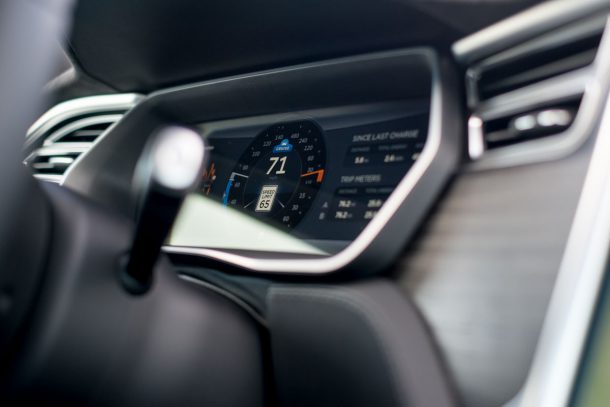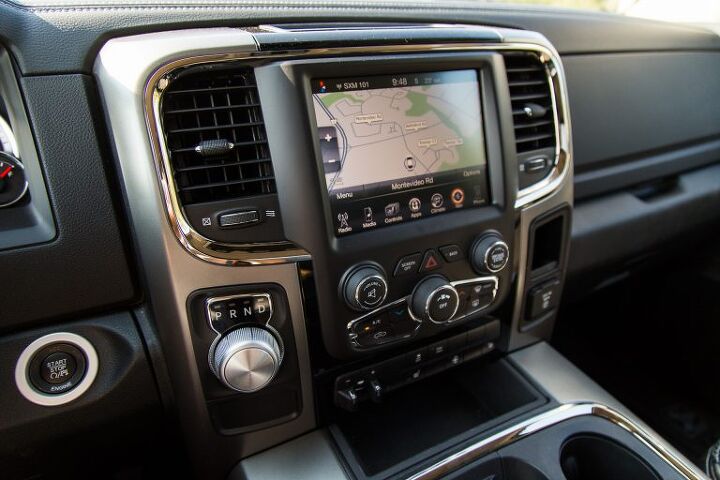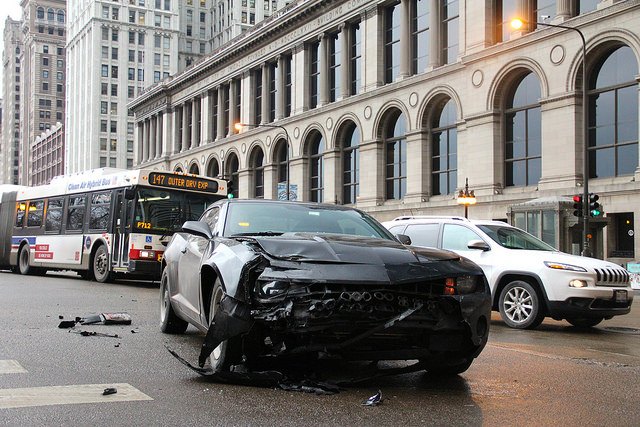#NHTSA
NHTSA's Tesla Autopilot Death Investigation Comes to a Close
The National Highway Traffic Safety Administration has closed the book on a six-month investigation into the death of a Tesla owner — and enthusiast — who died in a car piloted by the company’s semi-autonomous Autopilot system. What did the federal investigation uncover? Not enough to warrant a recall or further probing into the technology.
In fact, the NHTSA’s report clears Tesla’s Autopilot system of any responsibility in the incident.
Big Yellow Taxis: New Checker Vehicles Are Still Coming in 2018, Company Says
Being a non-conformist used to mean driving a German or Japanese car. For those who really wanted to make a scene, Sweden was more than happy to provide a quirky Volvo or Saab. Well, that strategy is out. Everything’s just too mainstream.
What’s an individualist to do? Electric cars have become too commonplace, and regulations make building your own car too much of a hassle. Enter Checker, which tentatively plans to build two offbeat versions of an already offbeat classic starting next year.
Rotary Shift Knobs Spark Another Rollaway Investigation
First, it was Fiat Chrysler Automobiles products with a tendency to roll away, even after owners placed them in park. Then, Ford decided to make sure vehicles with rotary shift knobs didn’t do the same thing, offering a “Return to Park” feature on the 2017 Fusion.
Two weeks ago, it was FCA’s turn again. The automaker found itself the focus of a National Highway Traffic Safety Administration investigation after more reported rollaways, this time with rotary-shift Rams and Dodges.
Well, NHTSA now has Jaguar Land Rover in its crosshairs. Care to guess why?
QOTD: Which Forbidden Classic Would You Import?
It’s the last week of the year, which means it’s time for end-of-year or new-year listicles. Time to recount all the celebrities who’ve passed, or to predict what will happen in the coming year. It’s a convenient time, certainly, as the turning of the calendar page allows one to mentally erase the past in favor of a potentially brighter future.
For guys like me, though, the lists of legally importable 25-year-old cars are the ones I’ll read the most. Heck, I wrote one last year.
Why Are Vehicles Still so Heavy? Blame Manufacturing Infrastructure
Car manufacturers have achieved significant fuel economy gains in recent years, but the improvements largely come down to upgraded drivetrain efficiency. Vehicles still weigh substantially more today than they did in the early 1980s, when the previous decade’s demand for fuel economy improvements forced the issue.
Since then, automobiles have gradually packed on the pounds — negatively offsetting the technology encouraging fuel frugality. Modern safety concerns, improved build quality, sound dampening, and consumer demand for bigness have all helped to keep the typical family transport oinking around a two-ton curb weight.
If companies could effectively slim down those autos, without sacrificing structural rigidity, safety, or consumer comfort, the efficiency gains would become all the more significant. However, with few consumers ready to dive back into noisy, frail hatchbacks, weight savings will likely need to be done on the molecular level. In a new study, the Center for Automotive Research (CAR) in Ann Arbor investigated the materials going into 44 separate 2015 model year cars and asked automakers what would they use if they suddenly needed to reduce weight from essential items.
Feds Decide to Cut Automakers Some Slack Over Fuel Economy Penalties
Government regulators have heard the auto industry’s plea for clemency pertaining to the United States’ corporate average fuel economy (CAFE).
Responding to a petition from industry groups, the National Highway Traffic Safety Administration is putting the brakes on a planned increase in penalties for not complying with CAFE standards. Automakers won’t have to worry about their 2015, 2016 and 2017 model-year vehicles anymore, as the penalties will now begin with 2019 models.
NHTSA Wants to Know Why Smart ForTwos Keep Bursting Into Flames
The National Highway Traffic Safety Administration has opened a preliminary evaluations in response to complaints that Smart ForTwo engines are catching fire before quickly engulfing the car in flames. Eight complaints have found their way to NHTSA about fires in 2008-2009 Four Twos, with six of the incidents occurring while the cars were being driven.
According to the agency, the incidents began with the illumination of the vehicles’ check-engine light, followed by smoke and odd noises. In every occurrence, owners claim the fires quickly spread to the entire car.
Different FCA Shifter, Same Problem? NHTSA Investigates Ram, Durango Rollaways
Just when it thought a troubling roll-away controversy and resulting recall was almost behind it, Fiat Chrysler Automobiles finds itself under investigation for a similar problem.
This time, it isn’t the now-defunct Monostable gear shift that supposedly confused drivers — it’s the rotary shifter found in late-model vehicles. After numerous complaints, the National Highway Traffic Safety Administration has opened an investigation into 1 million FCA vehicles that could pose a roll-away risk.
U.S. Department of Transportation Proposes Mandatory 'Talking Car' Technology to Prevent Crashes
The United States Department of Transportation has proposed a rule that would require vehicle-to-vehicle communication technology in all new cars.
Vehicle-to-vehicle systems allow cars to communicate information to each other that could be used to update drivers about potential accidents, possibly reducing the number of crashes on U.S. roadways. The basic technology uses short-range radios to send and receive vehicle data on location, speed, direction, and braking status. While extremely useful in the application of autonomous driving technology, a lot of the potential safety applications resulting from V2V has not yet been conceived.
Salespeople Vs. Reality: When Dealers Misrepresent Technology, You Lose
Industry watchdogs are becoming increasingly concerned that salespeople are misrepresenting new vehicles’ semi-autonomous features to customers. Considering that most salespeople work on commission, consumers are used to hearing that prices are non-negotiable or that they will get a “great deal” on their trade-in. Dealer fibbing is par for the course.
However, claiming a car’s safety capabilities are more robust than they actually are — either due to greed or ignorance — can cost both parties more than a few extra bucks.
Them's the Brakes: Ex-NHTSA Administrator, Consumer Groups Sue NHTSA
Automatic emergency braking (AEB) should be mandatory, not voluntary, say safety groups, some of which have sued in order to see it happen.
It’s something of an odd situation, as one of the people behind a lawsuit filed against the National Highway Transportation Safety Administration is an ex-NHTSA administrator.
NHTSA's Cell Phone Proposal is 'Disturbing': Technology Group
There’s no denying that distracted driving is a dangerous epidemic, but consumer and safety advocates are split on the best ways to tackle it.
While the proposed guidelines for mobile device makers issued last week by the National Highway Traffic Safety Administration won applause from safety groups, one consumer technology organization has accused the regulator of overreach.
It’s a “slippery slope” argument, now that the federal government wants mobile devices to operate in the same way as in-car infotainment systems.
NHTSA Wants Your Phone to Know If You're Driving
First, it came for your car’s infotainment interface. Now, the National Highway Traffic Safety Administration is after your phone.
The road safety regulator has proposed a new set of guidelines designed to combat rising distracted driving deaths, and part of it involves making your phone aware of where you’re sitting. Specifically, that seat behind the wheel.
GM: Our Takata Airbags Are Better Than Those Other Takata Airbags
A crop of General Motors pickups and SUVs left the factory with potentially deadly Takata airbags, but the automaker has won approval to delay their recall.
According to The Detroit News, the National Highway Traffic Safety Administration has allowed GM to defer repairs on 2.5 million vehicles so it can test the lifespan of the faulty parts. Naturally, there are conditions attached.
Enjoy the Silence (While You Can): New U.S. Safety Rule Says Electric Cars Must Be Noisy
The U.S. Transportation Department has finalized rules that will require electric vehicles and hybrids to emit “alert sounds” at speeds below 18.6 miles per hour, to warn cyclists, pedestrians, and the blind of the approaching danger.
By adding noise to silent-running vehicles, the NHTSA and DOT hope to reduce the number of people currently being run over by EVs. Is this a big problem, you ask? Apparently it is — the regulator claims EVs are 19 percent more likely to strike human flesh.






























Recent Comments